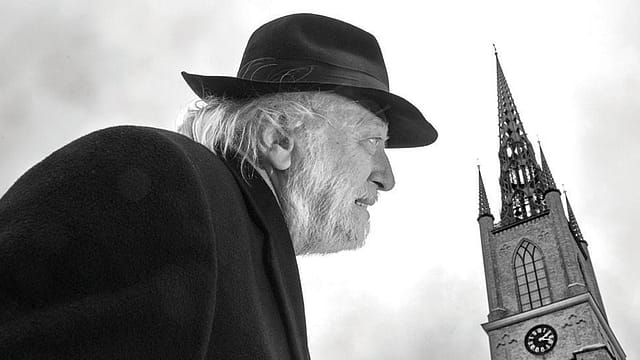The Master of Apocalypse

The Nobel Prize for literature returns to the heart of Central Europe, or a geography that was retrieved after the collapse of the communist bloc. Hungary was a People’s Republic when László Krasznahorkai was born in 1954. He would have been too young to remember the bloodbath of 1956 but he was almost a teenager when his father enlightened his son about his hitherto hidden Jewish identity. The Nobel, however, has been awarded to a citizen of the world who has lived over half of it—in Germany, China, Mongolia, Japan, Spain, Greece, the US, etc. In communist Hungary, Krasznahorkai was once a miner, knowing nothing about mining. Then he was a director of village “culture houses” around Budapest, basically public libraries around which rural intellectual life revolved. He also watched over 300 cows in an uninhabited stretch of land. He fell in love with Dostoyevsky and drinking.
Krasznahorkai the writer is not for the uninitiated. That is not because his vision is dark. It’s not because his fiction has its compulsive obsessions. All of that is balanced by the richness of his humanism and curiosity about the world, and his humour. Humour, even at its blackest or earthiest, is expected of a writer who believed, as he once told the Paris Review, in the legend that a true Hungarian genius had to be a “crazed drunk”, only to revolt against the truism when other Hungarian writers acknowledged their subscription to it. Krasznahorkai had made a bet—for 12 bottles of champagne—that he would never drink again.
Lost: The Unstoppable Decline of Congress
05 Dec 2025 - Vol 04 | Issue 50
Serial defeats | Leadership in denial | Power struggles
Krasznahorkai is truly formally inventive when few writers dare to be so anymore. The typical Krasznahorkai sentence is of epic length, often spanning dozens of pages. He has said that the full stop “belongs to god”. His monologues can threaten to overwhelm the narrative and the sentences change pace, burn themselves out or disintegrate like his characters, but the entropy is the point. Krasznahorkai, somewhat controversially called a Late Modernist, does not do stream-of-consciousness in the Modernist sense. His is not a fragmentation of the world outside through the machinations of the mind. Rather, it is a flow, a “vast black river of type” as his one-time translator George Szirtes called his work. Krasznahorkai wants the reader to come along for the uncomfortable ride.
In his debut novel Satantango (1985, trans 2012), a child poisons herself in Wenckheim Castle. Baron Wenckheim, fleeing gambling debts in Argentina, returns to his hometown in Baron Wenckheim’s Homecoming (2016, trans 2019) and triggers his own destruction and that of the unscrupulous townsfolk. The author knows only too well how the innocent can wreak havoc and elevates the chaotic interiority to art and plot driver. Of course, he has often felt he was writing only one book, over and over again.
There was a time this global citizen could not travel, when his passport was confiscated by the commissars of the People’s Republic. The resultant claustrophobia, experienced by most intellectuals on the wrong side of the Iron Curtain, persisted even in his second novel The Melancholy of Resistance (1989, trans 2000). The end of communism in Europe opened him up to new influences, particularly Eastern philosophy and art, as in Seiobo There Below (2008, trans 2013). But his unhappy hunting grounds remain Mitteleuropa. Earlier this year, he published a short story called ‘An Angel Passed Above Us’ set in the Ukrainian trenches. Horrified by the war, he confessed in a recent interview with Hari Kunzru that he thinks World War I is repeating itself.
It was Susan Sontag who called Krasznahorkai the “Hungarian master of apocalypse” and the Nobel citation proclaimed “his compelling and visionary oeuvre that, in the midst of apocalyptic terror, reaffirms the power of art”. It’s that sense of Apocalypse Now that makes this a perfect year to award Krasznahorkai.
